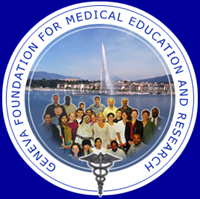Extension work as a means of vocational reaffirmation: a need for education in Ecuador
El trabajo extensionista como vía de reafirmación vocacional: una necesidad de la enseñanza en Ecuador
Patricio Vintimilla Burgos1*
Cecilia Isabel Pluas Robles1
Mario Ángel Royero Moya2
1University of Guayaquil. Ecuador.
2Vicente Rocafuerte School. Ecuador.
* Author for correspondence. Email: napoleon.vintimillab@ug.edu.ec
Submitted: 1/04/2019
Approved: 3/04/2019
To the editor:
It was our satisfaction to read in the Original Articles section in your journal "Dentistry vocational training groups: space for vocational guidance and oral hygiene in schoolchildren".(1)
The authors of this letter fully agree with the issues discussed in which the authors, coinciding with Vidal Ledo et al.(2) conceptualize vocational guidance understood as a process that helps the choice of a profession, preparation for it, access to its exercise and its evolution and subsequent progress.
Cuba constitutes a bulwark for Latin America in the fields of vocational training and professional guidance from an early age, which begins with participation in the vocational training groups as the path that has shown the most positive results. In this article, theoretical and practical knowledge about the Dentistry degree are provided that are a source of motivation for the student to select that profession in the future, endowed with the necessary knowledge and sufficient to stimulate them for their studies, and therefore, reach a good academic performance.(3)
Vocational training for students of university education is essential to achieve graduates with the necessary skills in order to solve the problems that arise in their professional practice. It starts from the first ages and does not end with the graduation of the student from its university center but it extends to the first years of its professional life, it reaffirms itself in a systematic way and continues during the training in its degree; it is conceived as part of the process of educating the subject's personality that prepares it for responsible performance.
In Ecuador it is necessary to enhance the vocation and professional orientation for Dentistry from schools and colleges. It is a challenge to strengthen these aspects which will bring better teaching results, and better trained professionals of higher quality.
A study carried out in a medical university in Cuba(4) showed that in the dropout school the vocational training and professional orientation of the students had a very specific influence. Of 33 who dropped out of medical school: the majority (17) received some elements about the degree; 11, few elements; 5, very few; and none obtained the information required before university admission. Among the reasons that the students had to choose the profession, 10 decided to study Medicine by vocation (30.0%); 5 did so because they had medical relatives (15.1%); 9 by decision of the parents (27.2%) and the remaining 9 chose it as the only option (27.2%). These data show that the lack of vocation for a particular profession has a large impact on student desertion. In the same way, professional guidance is necessary for the continuity of the study of the degree; this way you will obtain the maximum information about the work that you will perform once you graduate.
In the opinion of the authors of this letter, schools, colleges and universities in Ecuador have new and complex challenges associated with the work of linking with the community as a way to interact with students of different teaching areas and thus increase vocational interest in the professions they study or will study.
REFERENCIAS BIBLIOGRÁFICAS
1. Contreras Pérez JM, Mirabal Díaz JM, de la Hoz Rojas L, Monteagudo Rodríguez A, Monteagudo Jiménez E, Gonzáles Pérez C. Círculos de interés de Estomatología: espacio para la orientación vocacional e higiene bucodental en escolares. EDUMECENTRO [Internet]. 2018 [citado 20/01/2019];10(3):[aprox. 19 p.]. Disponible en: http://scielo.sld.cu/scielo.php?script=sci_arttext&pid=S2077-28742018000300009&lng=es
2. Vidal Ledo M, Fernández Oliva B. Orientación vocacional. Educ Med Super [Internet]. 2009 [citado 20/01/2019];23(2):[aprox. 9 p.]. Disponible en: http://scielo.sld.cu/scielo.php?script=sci_arttext&pid=S0864-21412009000200011&lng=es
3. Vicente-Sánchez B, Vicente-Pena E, Rocha-Vázquez M, Costa-Cruz M. Orientación y formación vocacional hacia la carrera de Medicina. Medisur [Internet]. 2014 [citado 20/02/2019];12(1):[aprox. 14 p.]. Disponible en: http://www.medisur.sld.cu/index.php/medisur/article/view/2725/1414
4. Infante Tavío NI, Mendo NA, Vázquez SM. Factores determinantes de la deserción escolar en el Policlínico Docente "Frank País García". MEDISAN [Internet]. 2012 [citado 14/01/2019];16(4):[aprox. 4 p.]. Disponible en: http://scielo.sld.cu/scielo.php?script=sci_arttext&pid=S1029-30192012000400006
Declaration of interests
The authors declare no conflict of interest
This article has been published under the license of Creative Commons
Copyright (c) 2019 EDUMECENTRO

Esta obra está bajo una licencia de Creative Commons Reconocimiento-NoComercial-CompartirIgual 4.0 Internacional.










